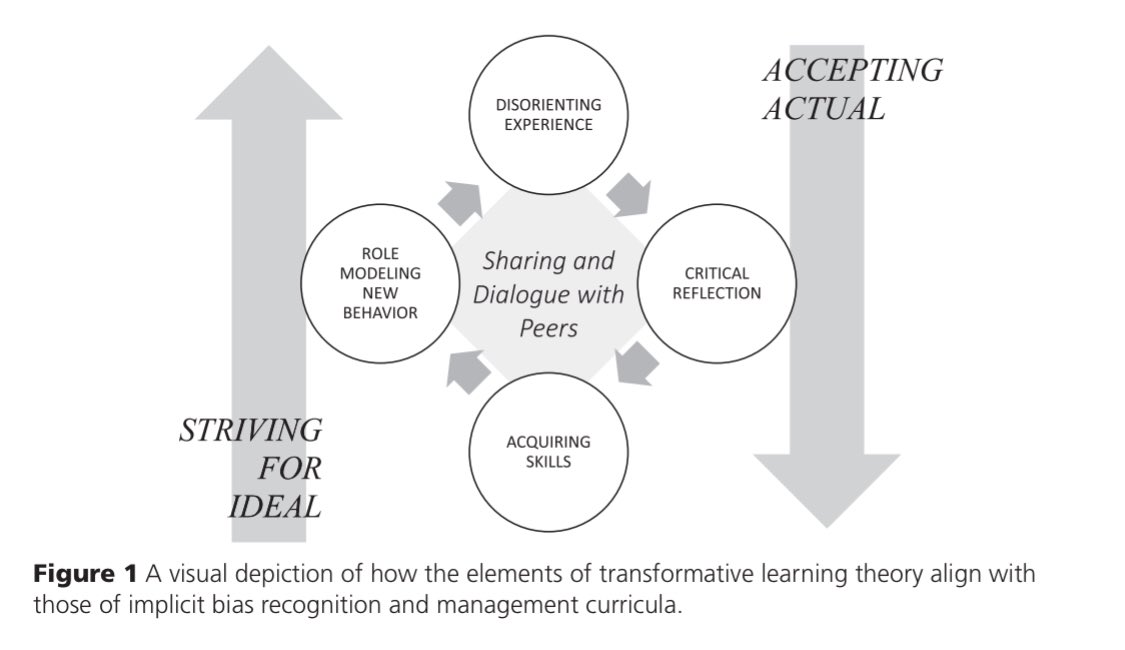How can we move beyond bias recognition towards anti racist transformation in #meded and #healthcare? ... a thread
Bias trainings have mixed results and have evoked critique and controversy. In a recent piece with #meded thought leaders @ChrisWatling3 and @CristinaMDNYC we argue that there is a lack of sound theory-informed educational strategies regarding bias recognition and management. /1
Transformative Learning Theory proposed by Jack Mezirow may provide some guidance. Mezirow Mezirow argued that reflection and dialogue synergistically influence one another to foster transformation of an individual’s personal paradigm. /2
Such transformation occurs through stressful experiences that provoke individuals to critically question deeply held beliefs and assumptions. Transformative education therefore replaces distorted or unjustified assumptions with a more inclusive frame of reference. /3
In our research, we found that reconciling bias involves changing behavior while critically questioning the sociocultural norms that developed biases and perpetuated discrimination within the workplace. /4
This means that education CAN be a tool for transformation. Education can trigger critical reflection on our individual biases AND the structural biases that surrounds us. But... reflection is not enough. /5
Moving from discomfort and disruption to action requires facilitated dialogue and skill development. Sustaining change also requires sharing and dialogue with peers. /6
All in all, there is no way to achieve transformation through a 'one and done' approach. We argue, "Running a single training session or workshop will simply be insufficient to address the harmful impact of implicit bias in a meaningful and effective way." /7
We also advocate for attention to faculty development. Any anti-racism curricula in #meded require skilled facilitators who are encouraged to be both trainers and role models, addressing and debriefing biased encounters in real time as part of their epistemology of practice. /8
In other words, teachers should focus less on 'doing' and more on 'being' - role modelling the essence of anti-racism through humility, deference, and acceptance of the imperfect self. /9
And of course, "Implicit bias also manifests in organizations, and efforts at training individuals will prove futile if attention is not given to contextual influences and structural biases." /10
Effectively implementing anti-racism should therefore involve empowering faculty as role models while leveraging organizational leadership to not only train individuals but also apply a critical lens to how bias is embedded within organizational policies and processes. /11
For more info check out our article in @AcadMedJournal here: https://journals.lww.com/academicmedicine/Abstract/2020/05000/Implicit_Bias_in_Health_Professions__From.21.aspx

 Read on Twitter
Read on Twitter


